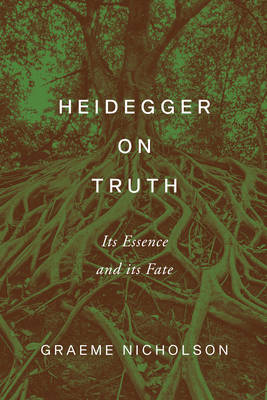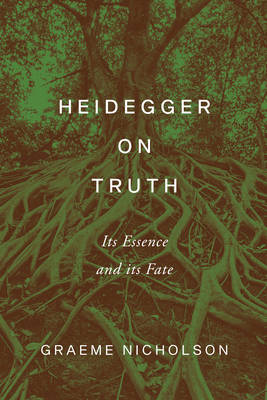
- Retrait gratuit dans votre magasin Club
- 7.000.000 titres dans notre catalogue
- Payer en toute sécurité
- Toujours un magasin près de chez vous
- Retrait gratuit dans votre magasin Club
- 7.000.0000 titres dans notre catalogue
- Payer en toute sécurité
- Toujours un magasin près de chez vous
Description
"What is truth?" This much-pondered question received a novel answer from Martin Heidegger, who was guided by the methods of phenomenology. Heidegger's 1930 address "On the Essence of Truth" takes us on a pathway of thinking that starts from the standard "correspondence theory of truth" and moves into larger discussions on truth, along the way drawing in such timeless issues as the freedom of human conduct and choices.
Heidegger on Truth is a close reading of this address, and of the essay that Heidegger published under the same title years later - first in 1943, and then in 1949. In Part I of this book, Nicholson explores Heidegger's movements of thought as they are presented in the original address. In Part II, Nicholson compares this lecture with its subsequent versions, uncovering the changes and detours in Heidegger's conceptualization of "truth." Part II also considers Heidegger's interpretation of Plato, scholasticism, and the tradition of modern rationalism. Accessibly written, this book provides a thorough examination of Heidegger's thoughts on the concept of "truth."
Spécifications
Parties prenantes
- Auteur(s) :
- Editeur:
Contenu
- Nombre de pages :
- 200
- Langue:
- Anglais
- Collection :
Caractéristiques
- EAN:
- 9781487504410
- Date de parution :
- 13-11-19
- Format:
- Livre relié
- Format numérique:
- Genaaid
- Dimensions :
- 152 mm x 231 mm
- Poids :
- 430 g

Les avis
Nous publions uniquement les avis qui respectent les conditions requises. Consultez nos conditions pour les avis.






